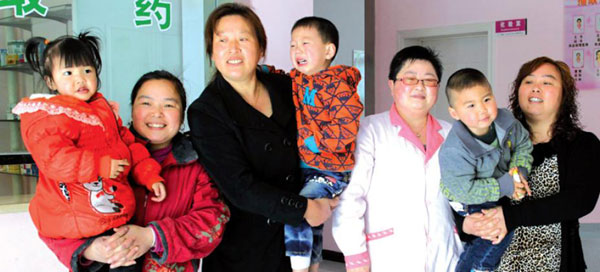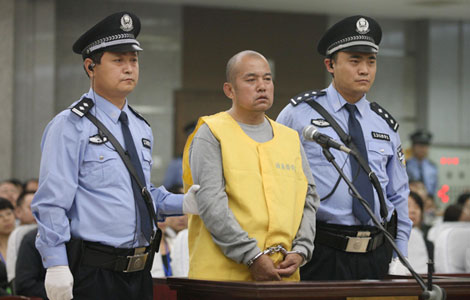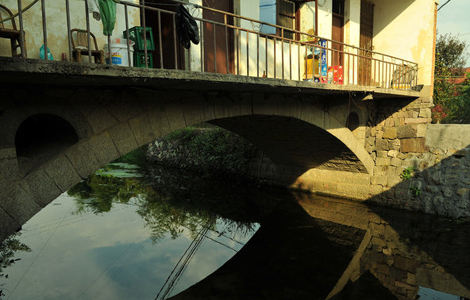

 |
|
Family planner Wang Fang helps mothers who lost their children in the earthquake to give birth again. HUO YAN / CHINA DAILY |
Wang Fang delivers hope's rebirth. The director of the family planning station in Leigu town in Beichuan county helps women who want to become pregnant after losing their children in the 2008 Wenchuan earthquake. Doctor Wang guides them past the psychological and physical barriers that make having another child difficult.
About 200 families lost children in the quake. More than 100 mothers have given birth again, and about 20 women are still having difficulties becoming pregnant, Wang says.
Many had operations to prevent pregnancy after having their first child, but that's not the only barrier. "About a dozen women are so anxious that they'll probably never have children again."
The women's average age is 37, Wang says. Some are older than 40.
Under national family planning policy, most can have one child but can give birth again if that child dies. Ethnic Qiang, who are common in Beichuan, could only have one before the quake but can now have two, partly because the disaster wiped out a large proportion of the ethnicity. All treatments and checkups are free.
"But they feel pressure," Wang says. "They don't want to believe their children are gone. They used to sob all day and fight with their families."
And that stress, Wang says, can lead to infertility.
"The first year after the quake, only a few women wanted to become pregnant. The more they wanted to get pregnant, the harder it became to get pregnant. And the more they worried about miscarriages, the more likely they were to miscarry."
Some tried in vitro fertilization twice, she says. One tried three times and failed.
"The trauma was raw and living conditions were dismal."
Every sound, including discussions between husbands and wives, could be heard through the temporary emergency compounds' walls.
"The miscarriage rate was high, especially in 2008 and 2009," she says.
It dropped to virtually zero after survivors moved into their new houses in the following two years. It was then that the most women had babies.
One mother has suffered from severe depression since the quake.
"She's unstable - sometimes very happy, sometimes very sad," Wang says.
"Some women are so worried about their age that they contrive any idea about anything that could go wrong."







